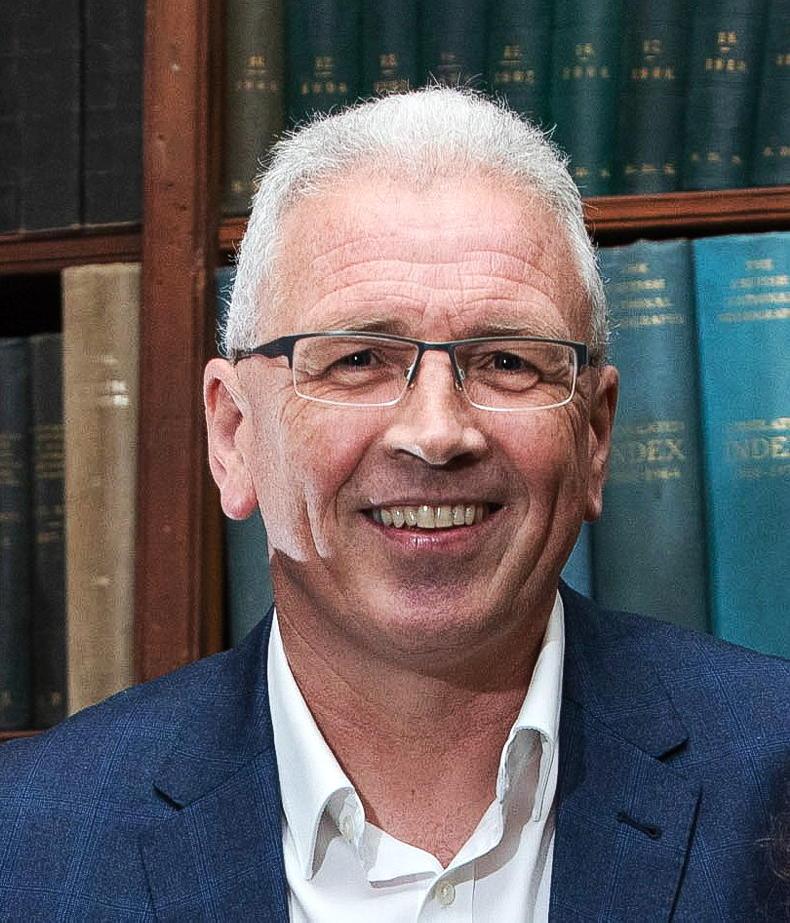Given the fragmented nature of private forest ownership in Ireland, group certification is the most cost-effective means of achieving forest certification.
This approach allows smaller forest owners to become certified and share the financial and administrative costs involved.
Twelve pioneers in the North East Forest Certification Club (NEFCC) and, more recently, members of Irish Forest Owners Group (IFO) have now achieved forest certification.
Among these are Des and Elaine Drew, winners of the 2023 RDS-Forest Service Forestry Awards for Production Forestry for their forest outside Julianstown, Co Meath.
The Drews’ forest contains a diverse mix of conifers, including Sitka spruce, Norway spruce and larch, together with broadleaves such as oak, sycamore, ash, alder and beech. This species mix encourages a wide range of flora and bird life, including jays, buzzards; yellow hammers and tree creepers.
Des and Elaine combine the forest’s production output and its biodiversity in achieving certification.
This approach also facilitates a variety of woodland activities, which benefits local bird-watching enthusiasts, shooting club members and forest owners, who wish to learn more about certification and practical forestry such as chainsaw training.
Goals
One of the goals of certification group members is to demonstrate that their forests are managed in a sustainable way, meeting strict regulatory, environmental and societal needs.
Excellence in sustainable forest management benefits the economy, as well as the environment and the wider community.
It is important to see such excellence rewarded and the Irish Timber Growers Association (ITGA) has made ongoing representations to the Department of Agriculture, Food and the Marine, to encourage forest certification uptake by private growers. This will require funding certification compliant forest management plans and also assisting with group certification initiatives.
Importance of forest certification
Forest certification demonstrates that forests are managed sustainably. It extends to timber processors and manufacturers who can brand their products as originating in sustainably managed forests.
Sawmills and board mills that are part of the certification chain of custody must source at least 70% of their roundwood input from certified forests.
Most of our sawn timber and panelboards are exported and to access these export markets, processors require their product to be certified.
If processors cannot source sufficient certified roundwood from private forests, they may then not be in a position to supply their export markets and receive the higher prices for such certified end products, with consequent negative knock-on effects for prices achieved by timber growers.
Within the next three years, the supply of roundwood from private forests is forecast to exceed supply from Coillte, which has certification.
This will have a significant impact on the availability of certified timber for the Irish processing sector.

Donal Whelan, technical director, ITGA.
Given the fragmented nature of private forest ownership in Ireland, group certification is the most cost-effective means of achieving forest certification.
This approach allows smaller forest owners to become certified and share the financial and administrative costs involved.
Twelve pioneers in the North East Forest Certification Club (NEFCC) and, more recently, members of Irish Forest Owners Group (IFO) have now achieved forest certification.
Among these are Des and Elaine Drew, winners of the 2023 RDS-Forest Service Forestry Awards for Production Forestry for their forest outside Julianstown, Co Meath.
The Drews’ forest contains a diverse mix of conifers, including Sitka spruce, Norway spruce and larch, together with broadleaves such as oak, sycamore, ash, alder and beech. This species mix encourages a wide range of flora and bird life, including jays, buzzards; yellow hammers and tree creepers.
Des and Elaine combine the forest’s production output and its biodiversity in achieving certification.
This approach also facilitates a variety of woodland activities, which benefits local bird-watching enthusiasts, shooting club members and forest owners, who wish to learn more about certification and practical forestry such as chainsaw training.
Goals
One of the goals of certification group members is to demonstrate that their forests are managed in a sustainable way, meeting strict regulatory, environmental and societal needs.
Excellence in sustainable forest management benefits the economy, as well as the environment and the wider community.
It is important to see such excellence rewarded and the Irish Timber Growers Association (ITGA) has made ongoing representations to the Department of Agriculture, Food and the Marine, to encourage forest certification uptake by private growers. This will require funding certification compliant forest management plans and also assisting with group certification initiatives.
Importance of forest certification
Forest certification demonstrates that forests are managed sustainably. It extends to timber processors and manufacturers who can brand their products as originating in sustainably managed forests.
Sawmills and board mills that are part of the certification chain of custody must source at least 70% of their roundwood input from certified forests.
Most of our sawn timber and panelboards are exported and to access these export markets, processors require their product to be certified.
If processors cannot source sufficient certified roundwood from private forests, they may then not be in a position to supply their export markets and receive the higher prices for such certified end products, with consequent negative knock-on effects for prices achieved by timber growers.
Within the next three years, the supply of roundwood from private forests is forecast to exceed supply from Coillte, which has certification.
This will have a significant impact on the availability of certified timber for the Irish processing sector.

Donal Whelan, technical director, ITGA.







 This is a subscriber-only article
This is a subscriber-only article











SHARING OPTIONS: